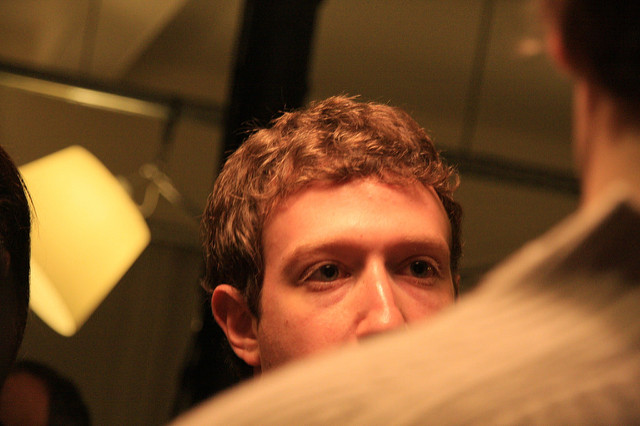 APPS
APPS
 APPS
APPS
 APPS
APPS
The U.K. Parliament Wednesday released a huge cache of documents that might vindicate hardline Facebook Inc. critics that charge the company is willing to sideline ethics to focus on the bottom line.
More than 250 pages of internal correspondence from 2012 to 2015 were released by U.K. lawmakers. The emails were originally sealed for a lawsuit that was brought against Facebook by an app developer called Six4Three. This data was requisitioned by a parliamentary committee as part of its ongoing investigation into Facebook’s practices.
Skeptics might not be surprised by the revelations, such as that Chief Executive Officer Mark Zuckerberg is interested in the company’s business as much as “connecting the world.” The emails appear to indicate that this was perhaps only a carefully constructed piece of business propaganda.
“It shows the degree to which the company knowingly and intentionally prioritized growth at all costs,” a former chief technologist of the Federal Trade Commission told the New York Times. Indeed, the emails show Zuckerberg as data-hungry, treating his billions of users like commodities.
In one case, Facebook cut off the Twitter Inc. video-sharing service, Vine, when an engineer said it could be a possible competitive threat. “Yup, go for it,” said Zuckerberg. “I remember that day like it was yesterday,” Rus Yusupov, one of Vine’s co-founders, said on Wednesday.
Maybe this was just business savvy, albeit cutthroat. But the emails show how Zuckerberg endorsed giving some developers more access to user data as well. They could then use that data, create apps and keep more people on the platform. Again, he outlined how people must be manipulated to get them to stay on the platform.
“Sometimes the best way to enable people to share something is to have a developer build a special purpose app or network for that type of content and to make that app social by having Facebook plug into it,” said Zuckerberg in an email in 2012. “However, that may be good for the world but it’s not good for us unless people also share back to Facebook and that content increases the value of our network.”
It’s not surprising that many Facebook meetings ended with everyone shouting “Domination!”
In another case, Facebook was faced with the conundrum of wanting to collect more data on its Android users. The company wanted to release an update to the Android app so that a user’s call log history and text messages would be collected. The problem was that Android’s privacy policies stymied this, because they required users to opt in first.
Facebook was well aware that if it couldn’t do this discreetly, users and journalists might start asking questions about this enhanced data collection. One Facebook employee put it like this:
“Screenshot of the scary Android permissions screen becomes a meme (as it has in the past), propagates around the web, it gets press attention, and enterprising journalists dig into what exactly the new update is requesting, then write stories about ‘Facebook uses new Android update to pry into your private life in ever more terrifying ways.’”
He was probably right, and no doubt Facebook had other instances when it had to create workarounds so as not sound an alarm that it was data hungry. In that case, a workaround did happen.
In another case Facebook acquired an Israeli analytics company to snoop virtually on users and see what apps they are using. Through the tools this company gave to Facebook, it was able to receive reports on the performance of any potential rival companies. The emails show these reports being sent to Facebook executives.
In 2013, one report showed how messaging service WhatsApp was out-messaging Facebook. Soon Facebook would buy WhatsApp.
“We don’t feel we have had straight answers from Facebook on these important issues, which is why we are releasing the documents,” said Damian Collins, the head of the parliamentary committee on digital culture and the media. Collins has been trying to get Zuckerberg over to the U.K. for a long time, but Zuckerberg each time has rebuffed the invitation.
“I believe there is considerable public interest in releasing these documents,” Collins went on. “They raise important questions about how Facebook treats users’ data, their policies for working with app developers, and how they exercise their dominant position in the social media market.”
Since the Cambridge Analytica scandal broke and news surfaced about how bad players from foreign governments had used Facebook to promulgate disinformation, the U.K. government has been busy putting together reports on what possible damage such a platform could do to a democracy. It also includes analyses of how social media might negatively affect its users psychologically.
It’s more than conceivable that Zuckerberg’s possible grilling in the U.K. will be much more of a test than his testimony in Congress in front of politicians that didn’t seem to know much about technology and for the most part threw Zuckerberg softballs that he gratefully collected and tossed back.
Facebook responded after the leak, saying the documents released were “cherry-picked” and tell “only one side of the story.” The gist of the post, which responds all the criticisms, is that nothing nefarious took place. It was just business.
For his part, Zuckerberg defended himself with an insistence that the released emails don’t tell the whole story.
“I understand there is a lot of scrutiny on how we run our systems,” Zuckerberg said in a personal post on Facebook. “That’s healthy given the vast number of people who use our services around the world, and it is right that we are constantly asked to explain what we do. But it’s also important that the coverage of what we do — including the explanation of these internal documents — doesn’t misrepresent our actions or motives.”
THANK YOU